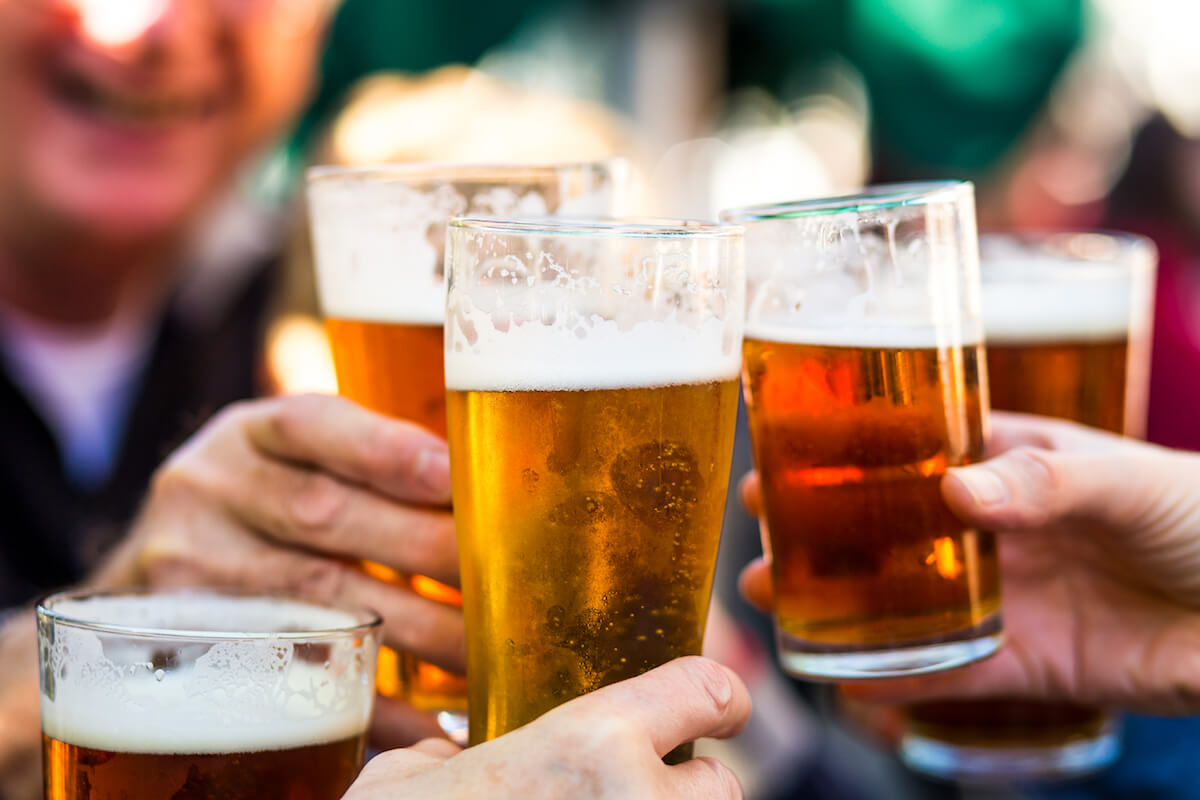<< Back
Find Out Your Bystander Score: Preventing and Responding To Alcohol Poisoning Emergencies

February 23, 2021
The beginning of any semester on a college campus is associated with an increase in incidents of alcohol poisoning. Returning to school often means increased independence as well changes in the substances that may be accessible to you.
Even if you choose to abstain from drinking, you may have friends or neighbors who choose to drink. It is important to know some basic facts to be an effective bystander. Bystanders can help prevent alcohol poisoning by sharing knowledge, looking out for friends who may be making concerning choices, or calling for help when a situation might be dangerous.
How Many Of These 12 Alcohol Poisoning
Prevention/Response Tips Do You Know?
(Count each tip that you know as 1 point to find out your Bystander Score)
- Eat before going out, snack throughout the evening.
- Stay hydrated with nonalcoholic beverages.
- Pace yourself. (People are more likely to get alcohol poisoning if they drink rapidly.)
- Avoid drinking games, using funnels or kegstands. (These can promote rapid consumption.)
- Don’t accept drinks from others. (These can contain very strong alcohol or drugs that you don’t want to take.)
- Measure and count drinks. (Look up how to use a Solo type of cup as a measuring tool.)
- Be aware that people of different weights and genders will respond differently to the same amount of alcohol.
- Don’t mix alcohol with other drugs. (Things like cough medicine, sedatives, painkillers, your prescribed medications, etc., can be much more dangerous when combined with alcohol than when used alone. Some combinations can even be deadly.)
- You cannot help someone “sober up.” (Despite all the myths, like giving someone bread or coffee, time is the only thing that helps people become sober.)
- Know the signs of alcohol poisoning (an individual don’t need to have ALL the signs): Stumbling (can’t walk without help), Cool to Touch (hyperthermia may be starting), Mumbling (not making sense, can’t answer questions), Blue/Gray Lips/Fingertips (they aren’t getting oxygen!), Unresponsive (unable to move/respond to stimuli), Vomiting.
- Know that calling Campus Safety for help does not mean someone is automatically going to the hospital. (EMTs need to complete an assessment to make the final determination.)
- Use the Recovery Position (if you are waiting for medical assistance, place an unconscious person in this position (click here) to prevent them from choking on vomit. Do NOT leave them alone in this position.) For more information, click here
Bystander Score
12-9 points: You have Outstanding Bystander Potential!
8-6 points: Above Average Bystander Potential!
5-0 points: Upgrade Your Bystander Skills!
Getting Help
No matter what your score, it’s your actions that determine if you are a good bystander. Often, students are scared they will “get in trouble” or get someone else in trouble when seeking help. Fortunately, Trinity College has a Medical Amnesty and Good Samaritan Policy that protects both you and/or a person you are concerned about from “disciplinary action under the College’s Drug Use and Alcohol Provision Policy” when students are seeking help due to the effects of alcohol or other drugs.
Always call Campus Safety (or have someone you know call Campus Safety) at 860.297-2222 if you think a person has alcohol poisoning.
Ultimately, the best way to address alcohol poisoning is to prevent it. Visit this website’s interactive Blood Alcohol Calculator to learn your personal limits aka how much alcohol in what amount of time might poison you.
You are always welcome to email pamela.mulready@trincoll.edu to contact Trinity’s Alcohol and Other Drug Education Specialist for your own personalized blood alcohol chart or for any confidential questions you may have about alcohol or other drugs.
Green Dot training is also a great way to learn more bystander intervention skills. Contact WGRAC for more information about Green Dot.